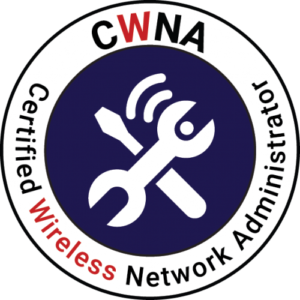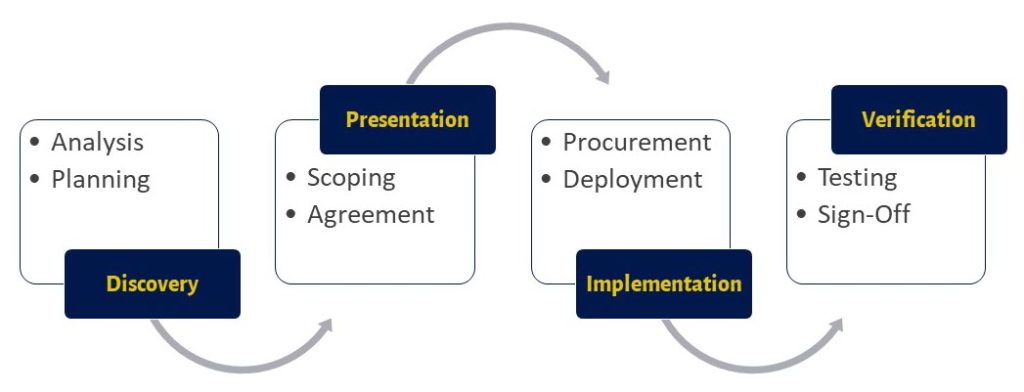- +1 (408) 252-9000
- info@msasys.com
- Mon - Fri: 8:00 - 18:30 PST
While MSA Systems is based in the United States, we live in a global economy and our projects often take us around the world, to Japan, Hong Kong, Australia, and anywhere your business needs us.















Controllerless WiFi: For small to medium sized installations without local IT support, MSA provides solutions that include a line of Instant access points that can be installed configured and integrated into a local area network with a minimum of effort. The instant WiFi system automatically creates a “virtual” controller on one of the access points eliminating the requirement for a separate “controller box”. If the access point acting as the virtual controller goes down, the system automatically moves the virtual controller to a different active access point.
On site Local Controller WiFi: For medium to large sized installations who have some basic IT support on site and want to have physical custody of their entire WiFi system, MSA provides solutions ranging from a single controller and dozens of access points to multiple controllers and thousands of access points. Multiple local controllers provide the ability for backup and redundant controller configurations.
On site Local Controller with off site Management: For multiple campus installations where centralized management is desired, MSA can provide a distributed controller model with centralized management, allowing visibility and controllability of the entire multiple campus WiFi network from a single location.
Cloud Managed WiFi: For any sized company who desires to take advantage of the latest technology and move their management operations to the cloud, MSA offers a number of cloud-based solutions. Local traffic is kept local and secure whereas control and management traffic is sent to the cloud where the information is analyzed for optimal efficiency and performance. Appropriate configuration adjustments, identified through the analysis process are then transmitted to the individual entity being optimized.
Wireless Bridging: For building to building connectivity where installing fiber or cabling is impossible or cost prohibitive, MSA offers several wireless bridging solutions. Unlicensed 2.4 GHz and 5 GHz solutions for short to medium distances with moderate bandwidth requirements, 24 GHz solutions for longer distances and/or higher bandwidths and lightly licensed 60 GHz for extreme bandwidth requirements.
Bluetooth Low Energy: For installations where location services and/or blue dot navigation is required, MSA provides solutions that include the entire spectrum of archecture types from stick-up battery operated beacons, BLE beacons designed to plug into an access point via USB connector, to virtual BLE beacons generated by the access point operating software.
The key to a successful project is in the management of the project. MSA Systems only employs the best of each specialty, representing decades of experience of best practices so that we can offer you the very best solution from people who have done it before, and know what is needed to succeed.
We will work with you to discover your current state, help you shape the end goal with best practices and standards, then build the plan utilizing our vast experience to get your business there.

You can choose your level of involvement, depending on your staffing availability and needs, and MSA Systems will fill in to ensure hitting the go live date.
Our teams adhere to the industry standardization of cabling installation as defined by the American National Standards Institute (ANSI), Telecommunications Industry Association (TIA), and Electronics Industries Alliance (EIA).
Design Services: Each Structured Cabling System (SCS) is unique, and many factors must be taken into consideration when designing a strong, reliable and manageable cabling system.
Voice and Data Cabling: MSA Systems has experience in performing services for legacy telecom systems and VoIP in many different types of environments.
Fiber Optics: MSA teams will work with you on what type of equipment, termination connectors, housing and jumpers you may require. Depending on your fiber termination locations, we will work with you on the type of fiber required for the installation.
Testing and labeling: Wiring infrastructure is the foundation for every network, and our cable installation services includes testing and certification, labeling both ends of the termination points and providing installation documentation.
Server Room Build-Outs: The server room usually houses your business and when a server goes down then is could be very costly. Working on an existing build out will also require coordination for down-time for connection on new equipment or cables.
Telecom Rooms: During the planning and/or survey MSA will determine location of Telecommunication Rooms (TR), if electrical power is available and if available is it enough to power the equipment.
Outside cabling: MSA installation teams have vast experience in outside cabling installations. We can take care of your aerial cabling, underground cabling, wireless bridging, and access point and antenna installations.
Security Camera Cabling: The site survey will determine location of cameras as well as location of security office. Cable testing and labeling will be in accordance with industry standards. Type of locations, warehouses, docks, parking lots, offices will be identified during the site survey.
Audio/Visual Cabling: MSA Systems can assist with all of your Audio/Visual (A/V) installation requirements cabling and/or hardware. Whether you need to set-up for business meetings, training rooms, auditoriums for presentations or conferences, court rooms, or medical facilities.


Difficult environments for Warehouse, Distribution, Manufacturing with metal, stone, and concrete.


Employees carrying multiple devices running up and down floors between meetings, lever losing connection.


Students, Faculty, and Administration using a single wireless network, limiting to specific resources.


Security, redundancy, for many devices in a Casino, supporting Guests, Games, and Administration.


Financial Institutions, Banks requiring the highest level of security and anti-intrusion protecting the economy.

















Since wireless is invisible, often wireless and connectivity issues can manifest to look like system issues. Our team of trained engineers will use advanced tools to check your current setup site by site, prepare multi-level heatmaps to visually communicate potential issues, and be able to confidently position next steps to make your facility fully functional.
A site survey determines access point placement, signal strength, wireless capacity, roaming characteristics, frequency usage, channel plan, uplink and downlink speeds, throughput and number of users per AP. A site survey also discovers rogue and neighboring access points as well as any radio frequency interference. MSA can perform different types of site surveys to best meet your needs.
AP on a Stick Passive Survey: An access point is configured with channel and power settings and temporarily mounted in a location representative of the final placement i.e. ceiling height and powered on. The survey engineer then maps out the signal strengths using survey software such as Airmagnet or Ekahau. Using the resulting coverage pattern from the first location the AP is moved to the next location and the process is repeated until the proposed coverage area has been mapped to the required specifications.
Abbreviated AP on a Stick Survey: This survey is similar to the AP on a stick, except that the access point is not moved to every location within the coverage area, instead the AP is placed in each representative areas such as walled offices, cube farm, classroom and so on. The RF propagation in each representative area is extrapolated to other similar areas. Building characteristics determine where and how many times the AP is placed.
AP on a Stick Active Survey: In this survey the access point is wired into the host network. This survey passes WiFi traffic through the access point to a software server such as iPerf or TamoSoft. In this way actual throughput can be measured.
Predictive Survey: This is better classified as a predictive design than a predictive survey. In this process drawings of the prospective coverage area(s) are imported into RF modeling software such as Ekahau, AirMagnet or iBwave. The coverage area is specified and coverage requirements are input. The walls, floor, ceiling, windows and elevator shafts are assigned appropriate RF attenuation values. An access point model is chosen along with accompanying antennas and placed on the floor plan. The software then models the coverage area in all three dimensions. Access points are added to the floorplan until the predetermined requirements have been met. A site visit is usually planned post predictive to ensure the identified access point locations are practical.
Outdoor Survey: When outdoor coverage is required, access points are temporarily mounted on buildings, rooftops, and poles. Signal strengths are measured with site survey tools by walking the building parameters, parking lots, paths, assembly areas and walkways. In large outdoor areas the survey tools may be paired with a GPS receiver too ensure proper location reporting.
Spectrum Analysis: Although technically not a “survey” in itself, it can be incorporated into a survey, or it can be performed as a standalone process. A spectrum analysis will show all electromagnetic energy within the range of frequencies used by WiFi. Performing a spectral analysis is of particular importance if the WiFi network is going to use the shared channels of the dynamic frequency range.
Validation Survey: After the WiFi network is installed a validation survey is required to ensure the final product meets the requirements specified. This includes mapping the signal strength, noise floor, roaming characteristics, capacity and throughput, delay and jitter connectivity and aesthetics.
Design and deploy wireless 802.11a/b/g/n/ax LANs for optimal performance, security and compliance with comprehensive wireless site survey software.
Proactively identify and locate any radio frequency (RF) interference source impacting Wi-Fi network performance.
Diagnose and fix interference issues fast and avoid costly downtime for your business-critical wireless network. Autotest and troubleshoot the most common Wi-Fi problems in seconds.
Decoding over 1,000 protocols, Omnipeek provides real-time analysis for every type of network segment – 1/10/40/100 Gigabit, 802.11, and voice and video over IP.
inSSIDer analyzes the configuration of your WiFi including channel settings, security, signal strength, and the impact of neighboring WiFi networks, prioritizing the results.
The WiFi Scanner obtains the network name (SSID), signal strength (RSSI) and quality, MAC address (BSSID), channel, maximum and achievable data rate, security, and much more.
The de facto standard across many commercial and non-profit enterprises, government agencies, and educational institutions.






MSA Systems provides turn-key field mobility solutions, warehouse management solutions, barcoding and RFID software and hardware as well as the related wireless infrastructure services.
GSA#:
GS-35F-0538Y
CMAS:
3-18-70-2117H
D-U-N-S:
60-538-3582
Cage Code:
4TJF6
California Certified Small Business
Woman Owned Small Business